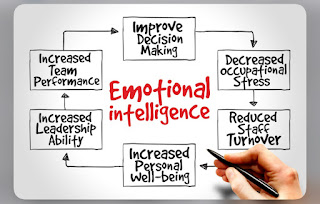Significance of Emotional Intelligence in Education
Emotional intelligence (EI) is a crucial skill that can help individuals navigate social situations and conflicts, manage stress, and communicate effectively. It is also a key factor in building stronger relationships, succeeding at work or school, and achieving personal goals. EI is composed of five key components: self-awareness, self-regulation, motivation, empathy, and social skills. Developing these skills can help individuals better understand and manage their emotions, as well as the emotions of others. Research has shown that individuals with higher EI are better equipped to work cohesively within teams, deal with change more effectively, and manage stress.
Self-awareness
The ability to recognize and understand your own emotions, as well as how they affect your thoughts and behavior. Self-aware individuals are able to identify their strengths and weaknesses, and are open to constructive feedback.
Self-regulation
The ability to manage your emotions and behavior in a way that is appropriate for the situation. Self-regulated individuals are able to control their impulses, think before they act, and adapt to changing circumstances.
Motivation
The ability to use your emotions to drive you towards your goals. Motivated individuals are able to set goals for themselves, work towards them with enthusiasm, and persist in the face of setbacks.
Empathy
The ability to recognize and understand the emotions of others. Empathetic individuals are able to put themselves in other people’s shoes, listen actively, and respond appropriately.
Social skills
The ability to interact effectively with others. Socially skilled individuals are able to communicate clearly, resolve conflicts constructively, and build strong relationships with others.


Comments
Post a Comment